|
Today is Bok-Dong Kim Halmoni’s funeral in South Korea.
Her funeral will be open to the public as a “citizen’s funeral,” attended by her supporters, who became her de facto extended family. According to Mee-Hyang Yoon, Chair of the Board of the Korean Council, who stayed by Kim’s side as she took her last breath, Kim expressed “rage toward Japan” and called for the continued fight to receive an official apology from Japan. On January 29th, according to the Korea Heard, “South Korean President Moon Jae-in sent a condolence message, praising Kim for dedicating her life to revealing hidden aspects of history and restoring the dignity of human beings. ‘Grandmother (Kim Bok-dong) did not remain a victim, but was at the forefront of setting history straight by demanding an apology and legal compensation for Japan’s aggression,’ Moon said on his Facebook page. ‘I will not forget to set history right,’ he said, vowing to fulfill his duty to the 23 living survivors. Later in the day, Moon visited the funeral home, where a memorial altar for the deceased was set up, to pay his respects.” Click here for more information on her legacy from the New York Times. Two days ago, the City of Glendale issued an “In Memoriam” honoring her lifetime activism in human rights and advocacy for peace at the City Council meeting. *Halmoni means “grandmother” in Korean. The victims are often addressed as “grandmothers” because the young girls and women who were once sex slaves had grown old by the time the inhumane crimes committed against them were made known to the world. Bok-Dong Kim Halmoni often identified herself as a butterfly freely flying, rising from the bondage of suffering. With deepest condolences, ESJF
0 Comments
The workshop held last Saturday, Nanjing Atrocities and “Comfort Women”: Teaching WWII in East Asia, was a resounding success. Thanks to all participants who shared their insightful comments, questions, and zeal for adding another layer of social justice into their teaching.
Thank you especially to Christina Tang and Faye Kwan for the inspiring presentations on the “comfort women” system and the useful and usable lesson plans, in spite of their busy schedule. Thank you, Brian Fong from Facing History and Ourselves, for organizing another great workshop and for the clear and information-packed presentation! Thank you Nga for replenishing our energy with a wholesome breakfast and lunch. Thank you, Alliance for Preserving the Truth of Sino-Japanese War (APTSJW), for providing additional resources and the space for the workshop. The tea and pineapple cake served during the break and lunch were delicious! It was a long day passed by so quickly with educators and partners. Many thanks to everyone, It is with grave sadness that I inform you that Bok-Dong Kim, a peace advocate and human rights activist, passed away yesterday. She was 93. A few months ago, on September 3, 2018, despite having had surgery five days prior, she staged a solo protest in pouring rain, demanding the disbandment of the Reconciliation and Healing Foundation. The Reconciliation and Healing Foundation was established on July 28, 2016 with the 1 billion yen from the Japanese government as part of the flawed 2015 “Comfort Women” agreement between South Korea and Japan. According to the deal, Japan would pay 1 billion JPY (around 8.3 million USD in 2015) in “charity” to South Korea to help victims of the “comfort women” system. In exchange, South Korea was to establish a foundation to help the survivors, provide no support for other efforts to install statues or monuments related to “comfort women” in other countries, stop referring the victims as sex slaves, and remove the “comfort women” statue across from the Japanese embassy in Seoul. On November 21, 2018, the Ministry of Gender Equality and Family of South Korea made a formal announcement that the South Korean government will begin the process of closing the foundation, taking account of the victims’ demands. When Congressman Mike Honda and I visited Bok-Dong “Grandma” Kim at the hospital on November 7 of last year, she asked visitors to keep fighting for her and her cause. In one of her last videos, recorded at Peaceful Our House at the Korean Council, she said, “Although sometimes I question whether or not our situation is hopeful, I know we need to hold onto hope. I do. Please follow me. Let’s gather our strength and not forget about hope. Let’s hold onto hope together.” ESJF hopes her message of resilient activism will assuage the deep sadness we feel. ESJF also expresses condolences to everyone at the Korean Council, who became a big loving family for Bok-Dong Kim, an unforgettable peace advocate and human rights activist. With deepest condolences, ESJF About Bokdong Kim (1926-2019): Once a Japanese military sex slave, Bok-Dong Kim later became an advocate for peace and a human rights activist. At the age of fourteen, she was forcibly taken by the Japanese military and sent to various countries, including China, Hong Kong, Malaysia, Indonesia, and Singapore, following their invasion route. Eight years after her mobilization as a Japanese military “comfort woman,” she returned home. In March 1992, she made a public testimony and began her activism. After she testified at the first Asian Solidarity Conference for the Resolution of the Issue of Military Sexual Slavery by Japan in August 1992, she testified at the World Conference on Human Rights held by the United Nations in Vienna, Austria, the 2000 Women's International War Crimes Tribunal on Japan's Military Sexual Slavery, and other occasions. Beginning in 2012, she carried out international campaigns at the UN Human Rights Council (UNHRC) and in the United States, England, Germany, Norway, and Japan, speaking of a world without war and victims of sexual violence due to armed conflicts. She also endeavored to provide financial aid to Korean schools in Japan, which suffer discrimination. The schools for students of Korean descent living in Japan are often excluded from the tuition subsidy program. Kim Bokdong lived at a home called “Peaceful Our House” (평화의 우리집), provided by the Korean Council, from 2010 until her passing in 2019. She passed away on January 28, 2019, and about two weeks later, on February 12, Gordon Mar, SF City Supervisor, issued a posthumous certificate of honor for her tireless work in advocating for peace and fighting for human rights. She held onto hope until the day she passed away: “Although sometimes I question whether or not our situation is hopeful, I know we need to hold onto hope. I do. Please follow me. Let’s gather our strength and not forget about hope. Let’s hold onto hope together.” ESJF co-founders were honored to attend a press conference and award ceremony where Julie Soo, co-chair of the San Francisco Collaborative Against Human Trafficking (SFCAHT) and a member of the San Francisco Commission on the Status of Women, received the SFCAHT Inspiring Leadership Award for her extraordinary contribution to the local movement toward the eradication of human trafficking. Soo organized a conference in 2015 on labor trafficking -- often overlooked relative to sex trafficking -- and involved law enforcement, social workers, health care providers, policymakers, and prosecutors. She has been incredibly supportive of installing a memorial in honor of “comfort women” and educating the public about their often misrepresented history. She said, “Only through remembering history and engaging global partners can we understand how to better prevent the failings of our collective existence.”
Second photo credit: Carol Sacco 『‘위안부’ 역사와 이슈: 교사용 학습안 지침서』를 펴내며 (About “Comfort Women” History and Issues: Teacher Resource Guide) https://www.nahf.or.kr/webzine/view.do?cid=59430 |
CategoriesCategories |
Proudly powered by Weebly

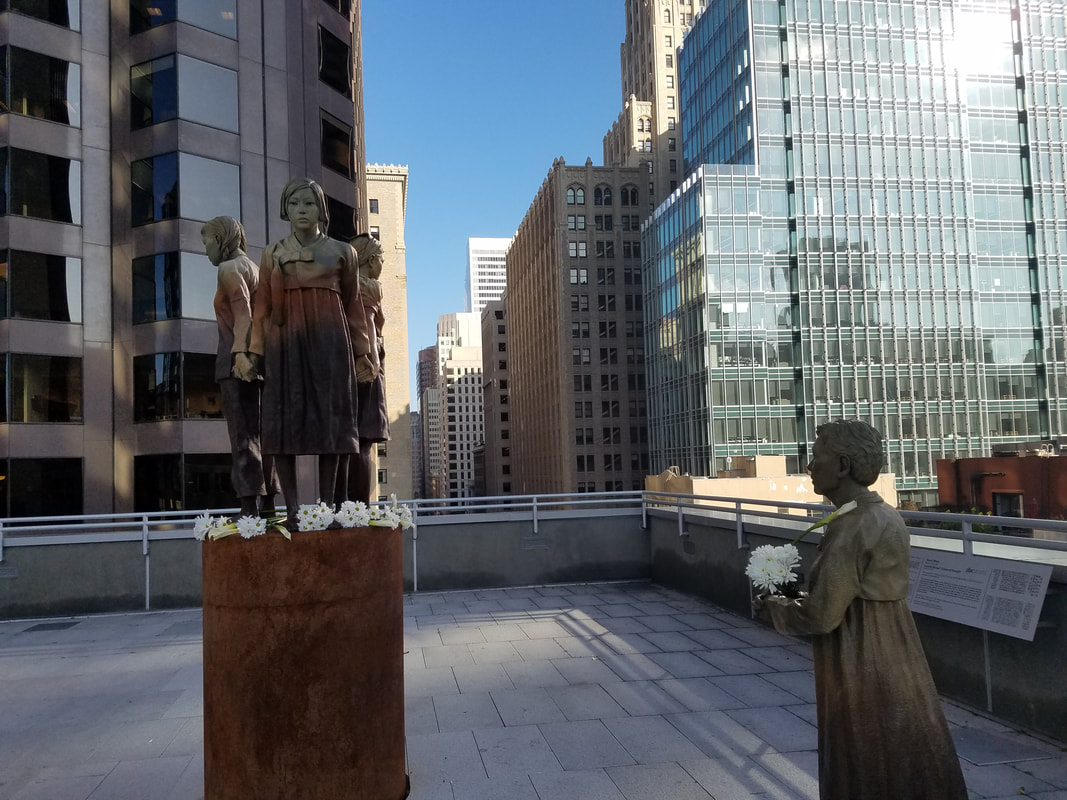
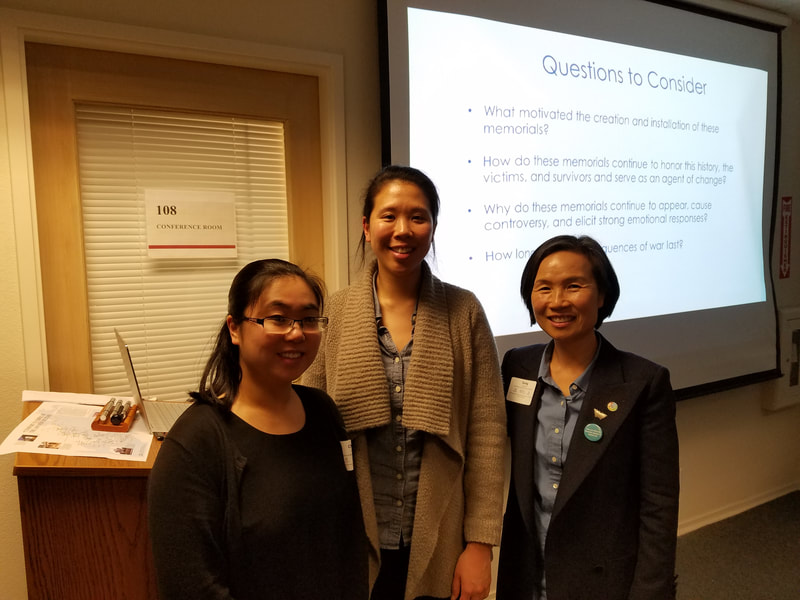
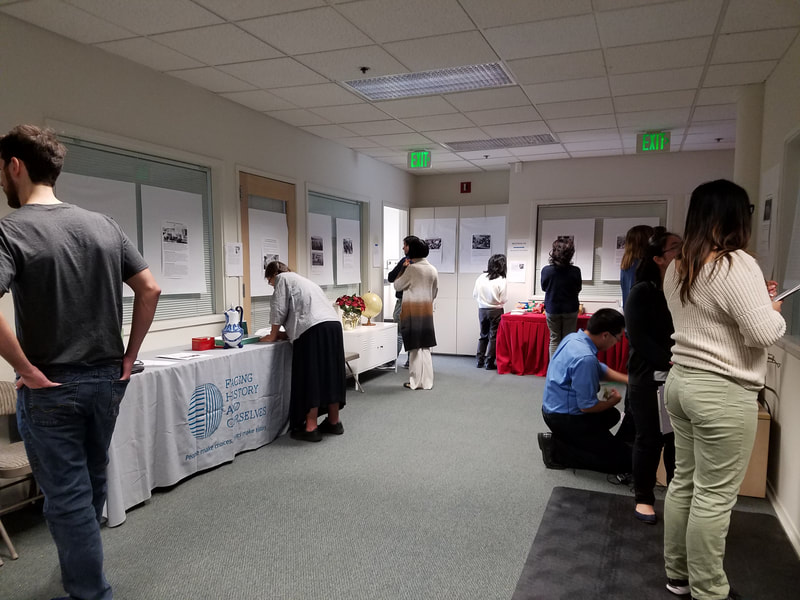
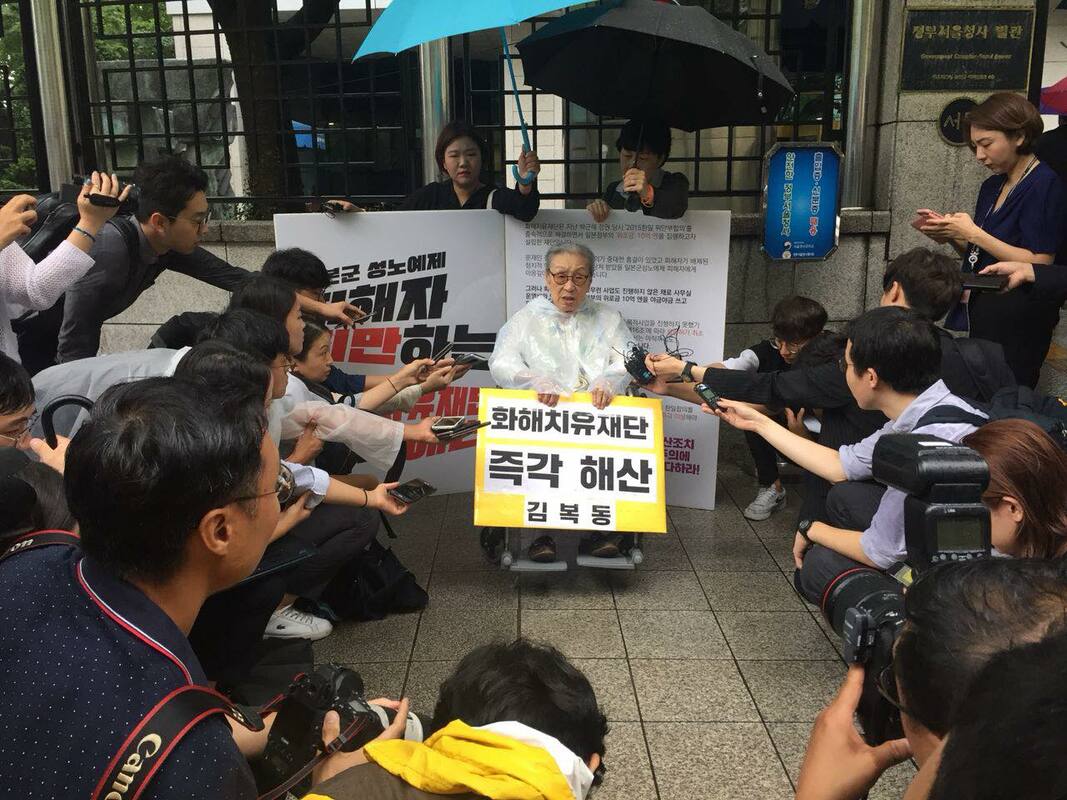
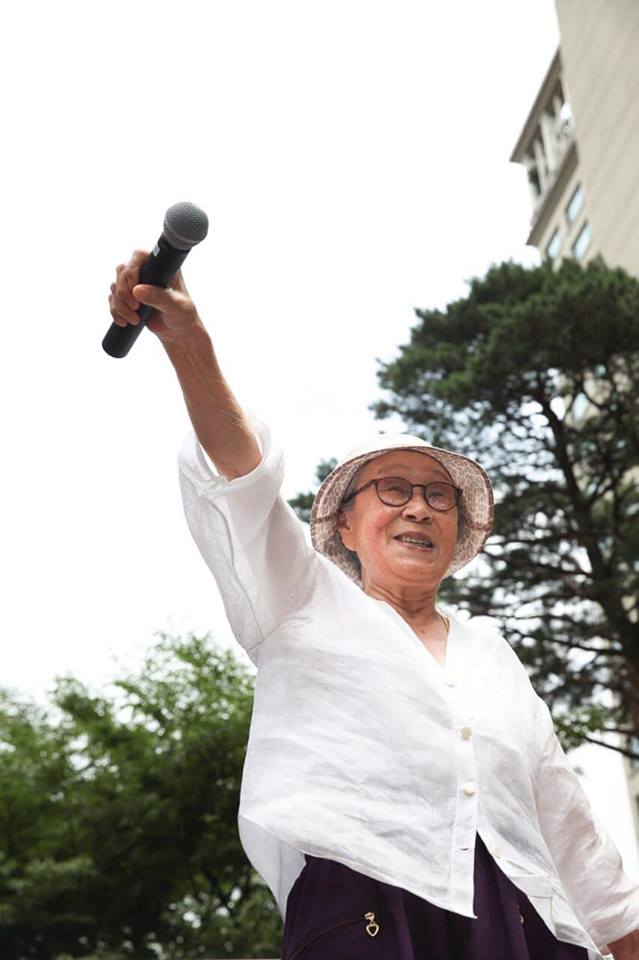
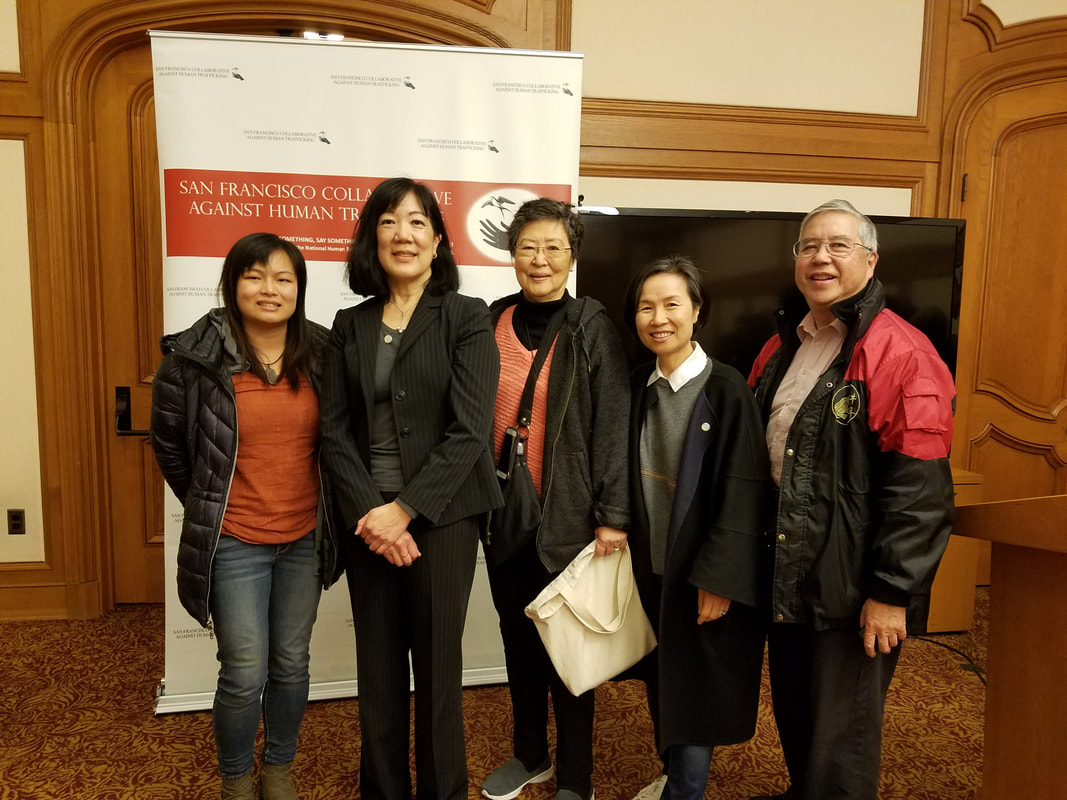
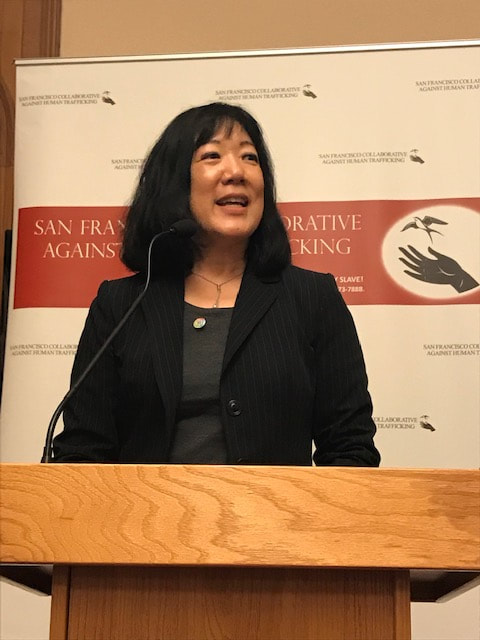
 RSS Feed
RSS Feed